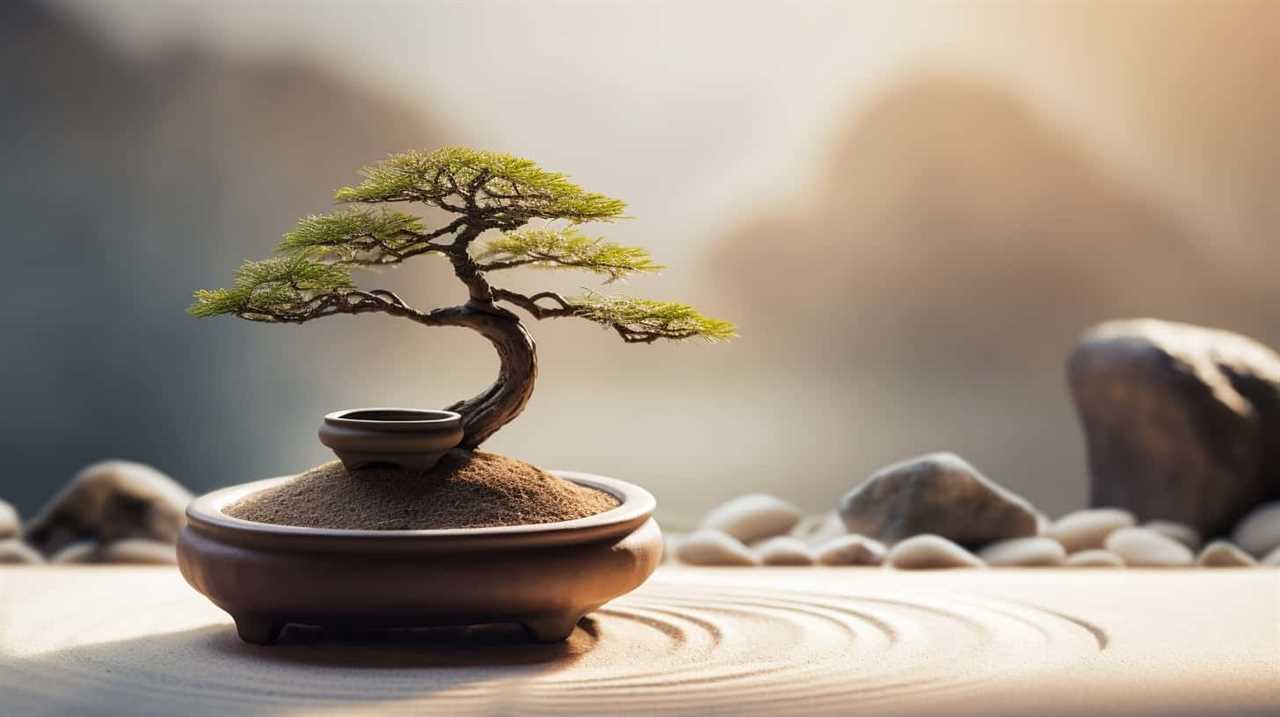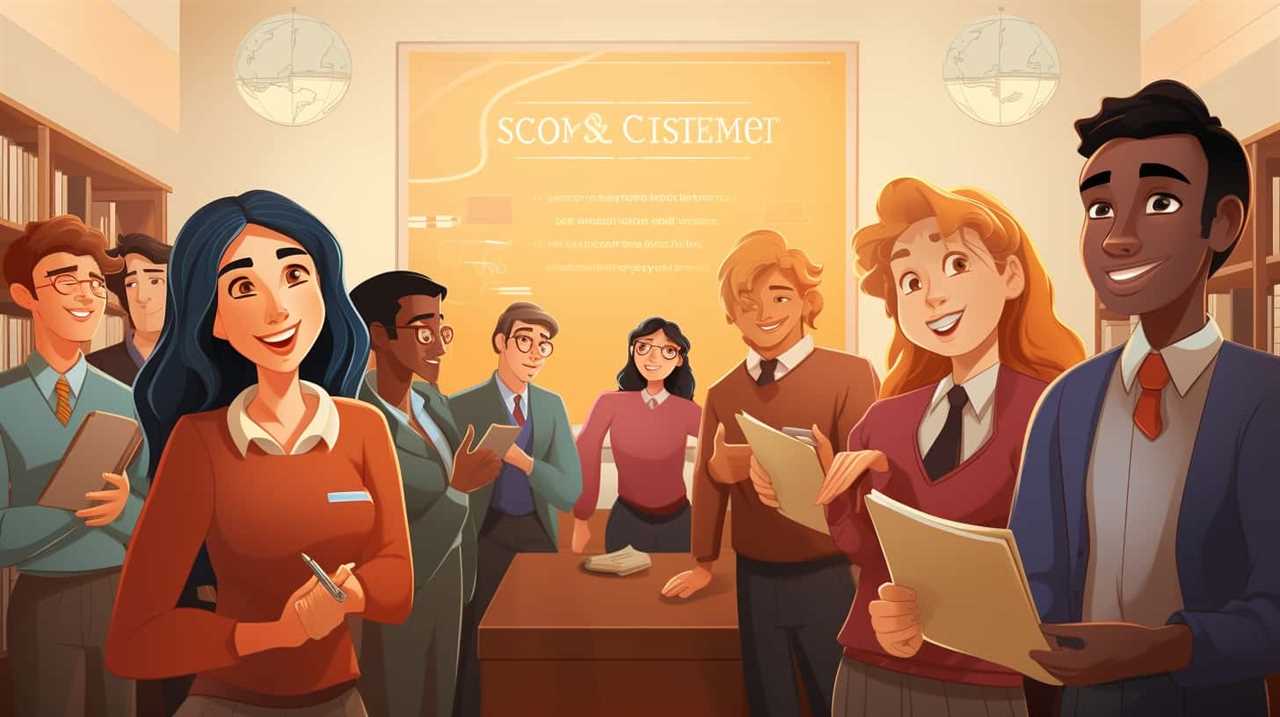We invite you to start an enlightening journey through Stoic Insights for Personal Growth.
In this pursuit of mastery, we explore the profound wisdom of Stoicism to enhance our lives and cultivate inner strength.
Through the power of acceptance, we learn to embrace the present moment, finding tranquility amidst life’s chaos.
Navigating the ups and downs, we discover the art of letting go of external control and embracing impermanence.

As we balance passion and detachment, we unlock the key to finding true happiness.
By cultivating virtue, we shape our character and become the architects of our own fulfillment.
Join us as we delve into the timeless teachings of Stoicism and unlock the path to personal growth and development.
Key Takeaways
- Embrace stoic principles of resilience and acceptance
- Focus on what’s within your control and let go of what isn’t
- Cultivate inner strength and fortitude to face adversity
- Shift your perspective from external circumstances to internal attitudes
The Power of Acceptance
The Power of Acceptance lies in our ability to embrace the realities of life and find peace in the face of adversity. Surrendering to the circumstances that life presents us with can be difficult, but it’s in this surrender that we can experience the benefits of acceptance.

When we resist or deny the truth of our situation, we create unnecessary suffering for ourselves. However, by accepting what is, we can find a sense of peace and freedom.
Finding peace in surrender requires a shift in our mindset. Instead of focusing on what we can’t change, we redirect our attention to what we can control. This allows us to let go of the need to control every aspect of our lives and instead focus on accepting the things we can’t change. In doing so, we release ourselves from the burden of trying to force outcomes that may be beyond our control.
Acceptance also allows us to cultivate resilience. When we surrender to the realities of life, we become more adaptable and better equipped to navigate challenges. Rather than resisting or fighting against adversity, we learn to flow with it. This ability to adapt and bounce back strengthens our emotional well-being and overall sense of mastery.
Embracing the Present Moment
When it comes to personal development, one of the key insights from Stoicism is the importance of embracing the present moment.

By cultivating mindful presence, we can fully engage with our experiences and learn from them, leading to growth and self-improvement.
Additionally, embracing the present moment allows us to find peace within ourselves, as we let go of worries about the past or future and focus on the here and now.
Mindful Presence for Growth
We can cultivate personal growth by embracing the present moment through mindful presence. Mindful awareness allows us to fully engage with our experiences and gain valuable insights that contribute to our personal growth journey. By focusing our attention on the present moment, we become more aware of our thoughts, emotions, and actions.
This heightened awareness enables us to make conscious choices that align with our values and aspirations. Through mindful presence, we develop the ability to observe and understand our inner workings, leading to self-reflection and self-improvement. It allows us to let go of past regrets and future anxieties, freeing us to fully immerse ourselves in the present and make the most of every opportunity for growth.

Mindful presence is a powerful tool on our journey towards mastery and self-actualization.
Finding Peace Within Now
Continuing from our exploration of mindful presence, let’s now delve into the concept of finding peace within now, embracing the present moment.
In our journey towards personal development, it’s essential to cultivate a sense of inner peace amidst the chaos of daily life. This requires us to practice mindfulness, the art of being fully present in the here and now.
By engaging in mindfulness practices, such as meditation or focused breathing exercises, we can train our minds to let go of worries about the past or future, and instead embrace the present moment with acceptance and gratitude.

This shift in mindset allows us to find tranquility and contentment within ourselves, regardless of external circumstances. Through finding inner peace and embracing the present, we can truly experience personal growth and fulfillment.
Cultivating Inner Strength
Cultivating inner strength is essential for personal development.
Building mental resilience allows us to navigate challenges with a sense of equanimity and adaptability.
Developing emotional fortitude enables us to handle our emotions in a healthy and constructive manner.

Strengthening our inner character helps us cultivate virtues such as courage, wisdom, and self-discipline.
These three points are interconnected and crucial for fostering a strong foundation of inner strength.
Building Mental Resilience
To build mental resilience and cultivate inner strength, we must navigate the challenges of life with a stoic mindset.
Building mental resilience is the process of developing the ability to bounce back from adversity and overcome obstacles. It involves training our minds to stay calm and focused in the face of difficulties, and to find the strength and determination to persevere.

By adopting a stoic mindset, we can develop the resilience needed to face life’s challenges head-on. Stoicism teaches us to accept the things we can’t change, to focus on what’s within our control, and to approach obstacles as opportunities for growth and learning.
Developing Emotional Fortitude
How can we develop emotional fortitude and cultivate inner strength?
Emotional fortitude is essential for navigating the challenges and complexities of life. To cultivate this strength, we must first recognize the importance of resilience in relationships. Building strong, supportive connections with others can provide a source of comfort and stability during difficult times.
Additionally, we must confront and overcome our fears and anxieties. By facing our fears head-on, we can develop the courage and confidence needed to overcome them. This process may involve stepping outside of our comfort zones and embracing discomfort as a necessary part of personal growth.

With time and practice, we can cultivate emotional fortitude, enabling us to navigate life’s ups and downs with grace and resilience.
Strengthening Inner Character
We can strengthen our inner character and cultivate inner strength by actively practicing stoic principles.
Strengthening self-discipline is an essential aspect of this process. By consistently exercising self-control and resisting the temptations of immediate gratification, we develop resilience and fortitude.
Stoicism teaches us to focus on what’s within our control, and by doing so, we foster self-awareness. This self-awareness allows us to understand our own emotions, thoughts, and actions more deeply, enabling us to make intentional choices and respond to challenges in a calm and rational manner.

It also helps us recognize our own weaknesses and areas for improvement, allowing for personal growth.
Navigating Life’s Ups and Downs
In order to better navigate life’s ups and downs, let’s embrace the stoic principles of resilience and acceptance.
Stoicism teaches us that life is inherently uncertain, and that the key to finding meaning in this uncertainty lies in our ability to adapt and accept the circumstances that come our way.
Navigating uncertainty requires a mindset of resilience. Rather than resisting change or becoming overwhelmed by it, we can choose to approach life’s challenges with an open mind and a willingness to learn and grow. Stoic philosophy encourages us to cultivate inner strength and fortitude, enabling us to face adversity head-on and persevere through difficult times.

Additionally, finding meaning in life’s ups and downs involves accepting that not everything is within our control. Stoicism teaches us to focus on what we can control – our thoughts, actions, and attitudes – and to let go of the things that are outside of our influence. By relinquishing our attachment to outcomes and embracing the present moment, we can find a sense of peace and contentment amidst the chaos.
Finding Tranquility in Chaos
By recognizing that chaos is an inherent part of life, stoicism empowers us to find tranquility amidst the unpredictability. In a world filled with constant change and uncertainty, it’s crucial to cultivate practices that help us maintain serenity in a chaotic world.
Here are five key insights from stoicism that can guide us in finding calm amidst turmoil:
- Acceptance: Acknowledge that chaos is inevitable and accept it as a natural part of life. Embrace the fact that we can’t control external events, but we’ve the power to control our response to them.
- Perspective: Shift your focus from external circumstances to internal attitudes. Cultivate a mindset that allows you to see challenges as opportunities for growth and learning.
- Equanimity: Practice emotional detachment and cultivate a sense of inner peace. Develop the ability to remain calm and composed, even in the midst of chaos.
- Mindfulness: Stay present and fully engaged in the present moment. By grounding ourselves in the here and now, we can avoid getting overwhelmed by future uncertainties.
- Virtue: Cultivate virtues such as patience, resilience, and self-discipline. These qualities will help us navigate through chaos with grace and integrity.
Stoicism teaches us that finding tranquility in chaos isn’t about controlling external circumstances, but rather about mastering our own minds. By adopting these stoic insights, we can maintain serenity and thrive in a chaotic world.

Developing Emotional Resilience
When it comes to personal development, one crucial aspect is developing emotional resilience.
It involves cultivating inner strength and handling adversity with grace.
Cultivating Inner Strength
We can develop emotional resilience by cultivating our inner strength. In our journey towards mastery, it’s essential to build a solid foundation of inner strength that can withstand the challenges we face. Here are five key ways to evoke emotion and cultivate our inner strength:
- Embracing discomfort and adversity as opportunities for growth
- Practicing self-compassion and nurturing a positive self-image
- Cultivating gratitude and focusing on the present moment
- Developing a growth mindset and embracing failure as a stepping stone to success
- Building a support network of like-minded individuals who can provide encouragement and guidance
Handling Adversity With Grace
To develop emotional resilience and handle adversity with grace, it’s important to cultivate our inner strength. Developing resilience isn’t about avoiding difficult situations, but rather about building the capacity to navigate them with composure and equanimity.

It requires a deep understanding of ourselves and our emotions, as well as the ability to regulate them effectively. By developing resilience, we can find peace amidst chaos and remain calm in the face of adversity.
This inner strength allows us to bounce back from setbacks and maintain a positive outlook, even in the most challenging of circumstances. It’s a skill that can be honed through practice and self-reflection, enabling us to face life’s challenges head-on and emerge stronger and more resilient.
Practicing Gratitude and Appreciation
The practice of cultivating gratitude and appreciation is an essential aspect of personal development. By acknowledging the good in our lives and expressing gratitude for it, we can experience a profound shift in our mindset and overall well-being. Here are five reasons why practicing gratitude and appreciation should be a daily habit:
- Increased happiness: When we focus on the positive aspects of our lives and express gratitude for them, we naturally feel happier. Gratitude helps us appreciate the simple joys and find contentment in the present moment.
- Improved relationships: Expressing gratitude and appreciation towards others strengthens our relationships. It fosters a sense of connection, deepens bonds, and promotes a positive atmosphere of mutual respect and support.
- Enhanced resilience: Gratitude helps us develop resilience by shifting our focus from what’s wrong to what’s right. It allows us to find strength and meaning even in challenging situations, enabling us to bounce back and grow from adversity.
- Reduced stress: Cultivating gratitude and appreciation has been shown to reduce stress levels. By focusing on the positive aspects of our lives, we can counteract negative emotions and create a sense of calm and peace within ourselves.
- Increased self-awareness: Practicing gratitude encourages self-reflection and introspection. It helps us become more aware of our thoughts, emotions, and actions, leading to personal growth and self-improvement.
Incorporating gratitude and appreciation into our daily lives can have a profound impact on our personal development. By making it a habit, we can experience increased happiness, improved relationships, enhanced resilience, reduced stress, and increased self-awareness. So let’s embrace the practice of gratitude and appreciate the transformative power it holds.

Taking Responsibility for Our Actions
By recognizing the impact of our choices and actions, we can empower ourselves to take responsibility for the outcomes in our lives. Accountability and growth are key components of personal development. It requires us to acknowledge that our actions have consequences and that we’re responsible for the results we achieve. Taking ownership and learning from our mistakes is a fundamental aspect of this process.
When we take responsibility for our actions, we’re acknowledging that we’ve control over our lives. We aren’t victims of circumstance but active participants in shaping our own destiny. This mindset empowers us to make better choices and take deliberate actions that align with our goals and values.
Furthermore, taking responsibility for our actions allows us to learn and grow from our experiences. It enables us to reflect on what went wrong, identify areas for improvement, and make the necessary changes to avoid repeating the same mistakes. By embracing this mindset, we open ourselves up to invaluable lessons and opportunities for personal growth.
Letting Go of External Control
One key aspect of personal development is recognizing that we can’t control external factors. In our journey towards self-improvement, it’s crucial to understand that we’ve limited influence over the world around us. This realization can be both liberating and challenging, as it requires us to let go of expectations and surrender control. Here are five powerful insights that can help us navigate this path:

- Embrace uncertainty: Life is inherently unpredictable, and resisting this truth only leads to frustration. By accepting the uncertainty of external circumstances, we can focus our energy on what’s within our control.
- Shift your focus inward: Instead of fixating on external factors, redirect your attention to your own thoughts, emotions, and actions. Cultivate self-awareness and strive for personal growth, regardless of external circumstances.
- Practice detachment: Detaching from outcomes and relinquishing the need for external validation liberates us from the constraints of external control. Embrace the present moment and detach from the outcomes of your endeavors.
- Cultivate resilience: Developing resilience allows us to adapt and thrive in the face of adversity. By surrendering control over external factors, we can focus on building our inner strength and resilience to navigate life’s challenges.
- Find meaning within: Instead of seeking validation or purpose from external sources, strive to find meaning within yourself. Nurture your values, passions, and personal growth to create a sense of fulfillment independent of external circumstances.
Letting go of expectations and surrendering control over external factors is a transformative journey that leads to greater self-mastery. Embrace these insights and cultivate a mindset that empowers you to navigate life’s uncertainties with grace and resilience.
Embracing Impermanence
To fully embrace personal development, we must confront the reality of impermanence and its impact on our journey. Embracing change and letting go of attachments are essential components of this process. Change is inevitable, and by acknowledging and accepting this fact, we can cultivate a mindset that is resilient and adaptable. Stoic philosophy encourages us to detach ourselves from external circumstances and focus on developing our inner virtues, as they are the only things within our control.
In order to emphasize the importance of embracing impermanence, let us consider the following table:
| Impermanence’s Impact on Personal Development |
|---|
| Challenges us to adapt and grow |
| Encourages us to let go of attachments |
| Teaches us the value of living in the present |
| Helps us appreciate the fleeting nature of life |
| Promotes inner strength and resilience |
By recognizing the impermanence of all things, we can liberate ourselves from the burdens of attachment. Letting go of attachments allows us to move forward with greater ease and freedom, unencumbered by the weight of the past. It enables us to focus on the present moment and make the most of the opportunities that come our way.

As we explore the concept of embracing impermanence, it is important to also consider the balance between passion and detachment.
Balancing Passion and Detachment
Finding the right balance between passion and detachment is crucial for our personal development journey. Striking this balance allows us to pursue our passions wholeheartedly while maintaining a sense of equanimity and detachment.
The art of detachment involves cultivating a mindset that allows us to let go of attachment to outcomes and external circumstances. At the same time, finding our passion is about discovering what truly excites and motivates us, driving us to pursue our goals with enthusiasm and purpose.
To evoke emotion in our audience, here are five key insights to consider:

- Embrace the power of detachment: By relinquishing our attachment to outcomes, we free ourselves from the burden of expectations and gain a sense of inner peace and serenity.
- Cultivate self-awareness: Understanding our passions and desires requires deep introspection and self-reflection. Developing self-awareness enables us to align our actions with our true passions.
- Practice mindfulness: Mindfulness allows us to stay present in the moment, preventing our passions from becoming all-consuming and leading to burnout.
- Embrace adversity as a teacher: Detachment teaches us to accept and learn from setbacks and failures, viewing them as opportunities for growth and self-improvement.
- Nurture balance in all areas of life: Balancing passion and detachment extends beyond our professional pursuits. It involves harmonizing our personal relationships, physical well-being, and mental health.
Embracing Virtue as a Path to Happiness
Let’s explore how embracing virtue can lead us to a path of happiness in our personal development journey. Virtue is often associated with moral excellence, but it goes beyond just being a good person. It encompasses traits such as wisdom, courage, justice, and temperance, which can guide us towards a fulfilling life.
When we prioritize virtue in our lives, we commit to self-improvement and self-awareness. We become more conscious of our thoughts, actions, and intentions, striving to align them with virtuous qualities. This process of introspection allows us to cultivate a strong sense of integrity and authenticity.
By embracing virtue, we develop a moral compass that helps us navigate through life’s challenges. We make choices based on what’s right and just, rather than being swayed by external influences or societal pressures. This empowers us to act in accordance with our values and principles, leading to a deeper sense of fulfillment.
Furthermore, embracing virtue fosters a sense of harmony within ourselves and with others. We cultivate compassion, empathy, and fairness, which strengthen our relationships and promote a more harmonious existence. We become more attuned to the needs and well-being of others, contributing to a more compassionate and interconnected society.

Frequently Asked Questions
How Can I Develop Emotional Resilience?
Building resilience and cultivating emotional strength requires a proactive approach. We can develop these qualities by embracing challenges, practicing self-awareness, and adopting a mindset that accepts and learns from adversity.
What Are Some Practical Ways to Practice Gratitude and Appreciation?
Practicing gratitude and appreciation can significantly improve our well-being. Journaling exercises, such as writing down three things we’re grateful for daily, and mindfulness practices, like savoring the present moment, can help cultivate these positive emotions.
How Can I Navigate Life’s Ups and Downs Effectively?
To navigate life’s ups and downs effectively, we must cultivate mindfulness and build mental strength. By staying present and resilient, we can adapt to challenges, find meaning in adversity, and make wise choices along our journey.
What Are Some Techniques for Finding Tranquility in Chaos?
To find tranquility in chaos, we can practice mindfulness and breathing exercises. By staying present and aware of our thoughts and emotions, we can navigate the storm with clarity and calmness.

How Can I Embrace Impermanence in My Daily Life?
In embracing impermanence, we learn to dance with the ever-changing rhythms of life. We let go of our attachments, allowing room for growth and transformation. It is through this acceptance that true freedom is found.
How Can Stoic Insights Contribute to Personal Development?
Stoicism lessons for today offer valuable insights into personal development. By focusing on self-discipline, wisdom, and resilience, individuals can navigate through life’s challenges with a sense of calm and purpose. Applying stoic principles can lead to greater emotional intelligence, mental strength, and a more fulfilling life.
Conclusion
In conclusion, the stoic insights for personal development offer a profound and transformative journey towards a fulfilling life. By embracing acceptance, living in the present moment, cultivating inner strength, and navigating life’s ups and downs, we can find tranquility in the midst of chaos.
Letting go of external control and embracing impermanence allows us to find balance between passion and detachment. Ultimately, by embracing virtue as a path to happiness, we can unlock our true potential and live a life of purpose and fulfillment.
Fritz is a writer whose humor and wit infuse life into words. His creativity, combined with a profound love for the English language, makes him a unique voice at afterQuotes. Fritz’s engagement with books, culture, and social media adds depth to his contributions, making them resonate with our diverse audience.










